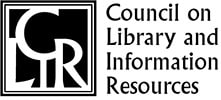The Meaning of Purim for Our Time, Television Program, March 17, 1957
[90103.001]
FROM THE TEMPLE ISRAEL ARCHIVES
This is Temple Israel television program: Rabbi Roland B. Gittelsohn and Rabbi Leon A. Jick: “The Meaning of Purim for Our Time,” March 17, 1957. Temple Israel of Boston Archives.
The March 17, 1957 episode of the This is Temple Israel television program features a brief Purim service, a description of the Megillah, the story of Esther, and a discussion between Rabbi Roland B. Gittelsohn and Assistant Rabbi Leon A. Jick about its universal meaning and continued relevance. They state that the Megillah provides insight into the causes of prejudice against Jews and minority groups and how those groups might respond. The rabbis argue that prejudice is due to the psychological fears of the oppressor and antisemitism exists because Jews have been a symbol for freedom and nonconformity of the individual and of minority groups.
The audio of the program begins with an abbreviated Purim service and a discussion of the significance of the holiday of Purim. Rabbi Gittelsohn and Assistant Rabbi Jick conduct the service as a conversational dialogue, and Temple member Frank P. Cohen periodically provides commentary. Three Purim blessings are chanted by the choir and the rabbis read from the Megillah in Hebrew and English. The two rabbis note that, while scholars have debated the historical accuracy of the story, there is much to learn from the Book of Esther that is still relevant today.
The rabbis state that, although Haman demanded that Jews conform to the majority in the name of uniformity, the real reasons for his prejudice were revenge, greed, and insecurity. Rabbi Gittelsohn also suggests that antisemitism has existed over many centuries because Jews have been a symbol for the rights of individuals and minority groups to follow their own religious beliefs, rights that are key in a democracy. King Ahasuerus characterizes those who, when confronted with prejudice, are apathetic until something directly impacts them. As the Megillah makes clear, however, there is no such thing as ethical neutrality; we are all responsible, especially in a democracy. Even Queen Esther is a complex symbol. She conceals her religion to become queen and is initially reluctant to risk everything to help her people. Only when she acknowledges her true identity does she redeem both her people and herself.
This is an audio recording of an episode of the This is Temple Israel television program (1953-1978). Sponsored by the Temple Israel Brotherhood and recorded at the Temple Israel of Boston campus on Commonwealth Avenue, it was broadcast on Massachusetts television station WNAC on the second Sunday of each month until 1978, when the show’s title and format were changed. The program broadcast program was produced by Alfred Sherman and directed by Ted Fechter and Tony Lang. Herbert Fromm, Temple Israel’s Music Director, was the conductor.
This recording, along with several hundred others that capture services, sermons, and other events from 1934-1979, have recently been digitized by the Temple Israel Archives. Free streaming access to these recordings is available via the Digital Commonwealth, The Digital Public Library of America (DPLA), or by request from the Wyner Archives, Temple Israel of Boston. This project was supported by a Recordings at Risk grant from the Council on Library and Information Resources (CLIR). The grant program is made possible by funding from The Andrew W. Mellon Foundation.

If you have memories of this or similar TI events, or any other comments or feedback that you would like to share, please send them to archives@tisrael.org.
